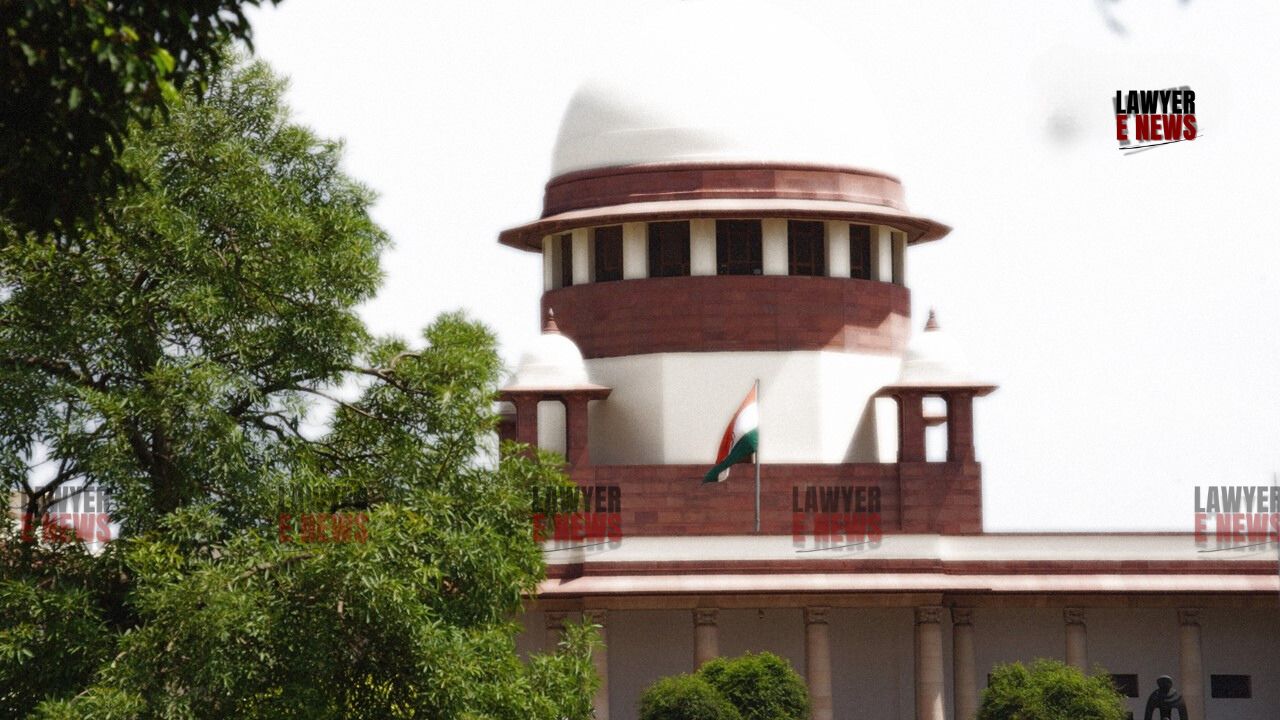-
by Admin
16 February 2026 1:47 PM



“Delay in Recording Witness Statements, Though Not Fatal, Must Be Properly Explained”: Apex Court Reiterates Legal Position in Murder Conviction - Supreme Court of India delivered a significant ruling in Firoz Khan Akbarkhan v. State of Maharashtra, reaffirming a conviction under Section 302 read with Section 34 of the IPC for the murder of one Sukhdeo Mahadeorao Dhurve. The Court dismissed the appellant’s plea to convert the conviction to culpable homicide not amounting to murder, holding that the accused had come armed with a knife, and the act was not spontaneous, but premeditated. The judgment clarifies important aspects regarding delay in witness examination, the effect of minor inconsistencies in eyewitness accounts, and the principles governing remission and premature release.
The prosecution alleged that on 19 April 2005, in Village Hiwarkhed, the deceased was confronted and fatally stabbed by the appellant following a quarrel over the alleged illicit relationship of the deceased’s sister (the informant) with a man named Rashid Kazi. As per the prosecution, “the appellant took a knife and inflicted blows by means of said knife on the chest of the deceased,” while the co-accused assaulted him physically. The deceased died on the spot.
The Trial Court convicted the appellant and one co-accused under Section 302 read with 34 IPC, sentencing them to life imprisonment, which was subsequently affirmed by the Bombay High Court. The appellant then approached the Supreme Court challenging the conviction.
The principal contentions of the appellant were: (1) that he had been falsely implicated due to communal rivalry, (2) that there were delays and inconsistencies in witness testimonies, and (3) that the offence was not premeditated and hence should fall under Section 304 Part I, IPC.
However, the Supreme Court rejected each of these arguments after a detailed analysis.
“The appellant inflicted the knife stabs on the deceased which could only have been possible if the knife was already with him… which clearly indicates that he had come with prior intention to cause bodily injury by knife… The intention to kill was very much present from the beginning.”
The Court found that the act of stabbing was not provoked on the spot but was the result of the accused arriving armed with a deadly weapon.
It was further held:
“This persuades us to refrain from converting conviction from under Section 302, IPC to one under Section 304-I, IPC.”
On Delay in Recording of Witness Statements:
One of the strongest arguments made by the defense was that the statements of eyewitnesses were recorded 2–3 days after the incident, raising doubts about the veracity of their accounts. The Court, however, accepted the explanation that communal riots had broken out, diverting the police from immediate investigative action.
The Court cited Ganesh Bhavan Patel v. State of Maharashtra and clarified:
“Delay in recording statements of witnesses, moreso when the said delay is explained, will not aid an accused… delay, if any, in recording statements will have to be examined… in conjunction with the peculiar facts of the case before it.”
Further, drawing from Goutam Joardar v. State of West Bengal, the Bench noted:
“The mere factum of delay by itself cannot result in rejection of their testimonies.”
On Minor Inconsistencies in Eyewitness Testimony:
Addressing another key challenge raised by the appellant regarding minor discrepancies between different eyewitnesses, the Court reiterated the settled legal position:
“Minor discrepancy or variance in evidence will not make the prosecution’s case doubtful… Parrot-like statements are disfavoured by the courts.”
Quoting Lekh Raj v. State of Himachal Pradesh, the judgment emphasized:
“In the depositions of witnesses there are always normal discrepancies, however honest and truthful they may be… Material discrepancies are those which are not normal and not expected of a normal person.”
On Examination of the Informant as Defence Witness:
The Court dismissed the criticism regarding the informant (the deceased’s sister) not being examined as a prosecution witness. The Court clarified:
“The important factor is that she and her testimony were available to the Trial Court in its pursuit of truth… and the prosecution, or the other accused, had the occasion and the opportunity to cross-examine her.”
On Plea for Premature Release and Remission:
The appellant, having spent over 14 years and 10 months in actual incarceration and nearly 20 years with remission, prayed for consideration of his case under more liberal remission policies. The State had earlier rejected his case, stating a requirement of 24 years (with remission).
The Court invoked State of Haryana v. Jagdish and Union of India v. V. Sriharan, to hold:
“A right to be considered for remission… must be held to be a legal one… the policy applicable must be the one most beneficial to the convict.”
Consequently, the Court granted liberty to the appellant to apply afresh with a detailed representation, directing the State of Maharashtra to pass a reasoned order within 3 months, taking into account the most favourable policy applicable.
The Supreme Court ultimately dismissed the appeal, finding the conviction under Section 302/34 IPC fully justified. The Bench ruled that the presence of the accused, the nature of the assault, and the use of a deadly weapon clearly demonstrated premeditated intent to kill, which could not be covered by any exceptions to Section 300 IPC.
Simultaneously, the Court issued a direction for reconsideration of the appellant’s case for remission, based on the applicable remission policy, recognizing his long incarceration and the evolving jurisprudence on rehabilitation.
Date of Decision: 24 March 2025
